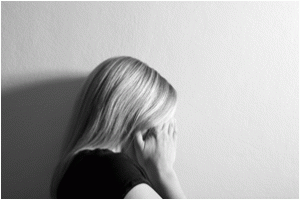 Until recent years, women who struggled with drug and/or alcohol addiction were often chastised by society. Consequently, it remained a hush-hush subject that was surrounded by shame. Even when chemically dependent women received treatment, they were treated in the same way as men. Today, experts in the addiction and recovery field have made great strides in determining and addressing the specific issues women face in active addiction.
Until recent years, women who struggled with drug and/or alcohol addiction were often chastised by society. Consequently, it remained a hush-hush subject that was surrounded by shame. Even when chemically dependent women received treatment, they were treated in the same way as men. Today, experts in the addiction and recovery field have made great strides in determining and addressing the specific issues women face in active addiction.
In 1946, E. Morton Jellinek handpicked a small group of Alcoholics Anonymous (AA) members to fill out a self-reporting questionnaire. The results of this study revealed a valley curve of alcoholism and thus, became known as the Jellinek Curve. Of the 113 valid responses, 98 showed similar patterns; the remaining 15 responses “differed so greatly” that they were thrown out (sample too small to analyze separately). As it turned out, these 15 questionnaires were filled out by the women of the group.
The Physiological Factors
Because women generally have less body mass and water content than men, they become intoxicated faster. They also become addicted sooner. The higher Blood Alcohol Level (BAL) in women not only impairs them more when they drink but also accelerates damage to the brain and other organs. The mortality rate for chemically dependent women is 50-100 times higher than their male counterparts.
The Evolutionary Factors
Women have an instinctive need for connection; they are biologically wired to sustain, nurture and respond to relationships. When primary relationships are ruptured by physical abuse, sexual abuse, or abandonment, women tend to experience the distress, pain, or suffering associated with such ruptures as a trauma. As a result, they often self-medicate to alleviate symptoms of post-traumatic stress disorder (PTSD). Trauma breeds more trauma.
Differences in Addiction Treatment
Oftentimes drug and alcohol addiction in women is tied into their relationships. Historically, more than half of the women who come to MARR for addiction treatment have a history of abuse. Our goal is to provide a safe environment so they feel comfortable facing these underlying issues that so often contribute to chemical relapse if left unresolved. During treatment, we address their trauma history as well as dual disorders, including depression, anxiety, bipolar, PTSD, and disordered eating.
At MARR, we understand that women flourish when they can connect to others in a healthy way. Therefore, we establish an environment geared toward healing, which includes safety, connection, empowerment, and health. At our Women’s Recovery Center, clients are given the appropriate tools for setting boundaries, nurturing relationships, and prioritizing self-care. Gender-specific addiction treatment programs are not only recommended—we see them as essential for lasting recovery.


